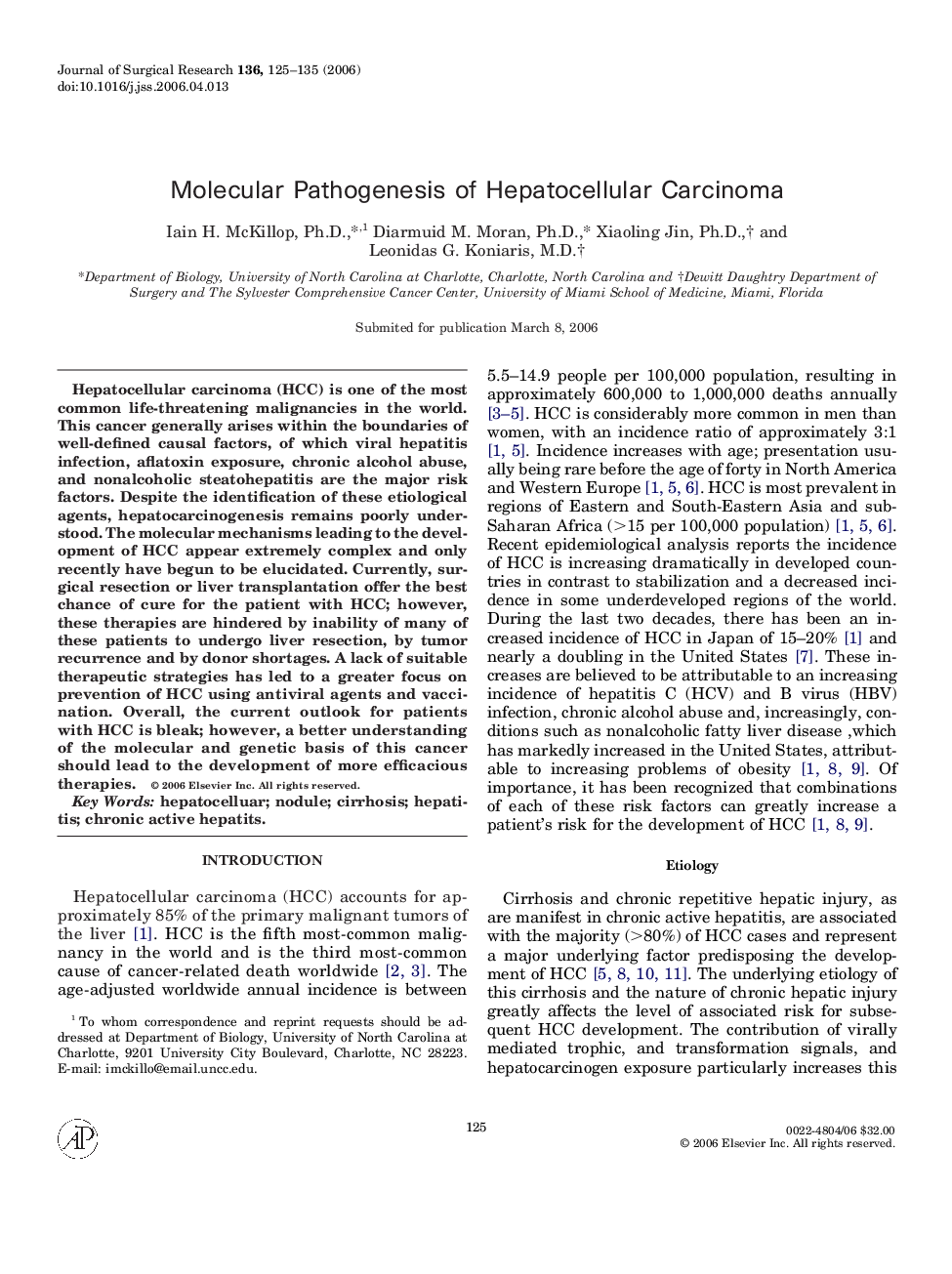| Article ID | Journal | Published Year | Pages | File Type |
|---|---|---|---|---|
| 4304764 | Journal of Surgical Research | 2006 | 11 Pages |
Hepatocellular carcinoma (HCC) is one of the most common life-threatening malignancies in the world. This cancer generally arises within the boundaries of well-defined causal factors, of which viral hepatitis infection, aflatoxin exposure, chronic alcohol abuse, and nonalcoholic steatohepatitis are the major risk factors. Despite the identification of these etiological agents, hepatocarcinogenesis remains poorly understood. The molecular mechanisms leading to the development of HCC appear extremely complex and only recently have begun to be elucidated. Currently, surgical resection or liver transplantation offer the best chance of cure for the patient with HCC; however, these therapies are hindered by inability of many of these patients to undergo liver resection, by tumor recurrence and by donor shortages. A lack of suitable therapeutic strategies has led to a greater focus on prevention of HCC using antiviral agents and vaccination. Overall, the current outlook for patients with HCC is bleak; however, a better understanding of the molecular and genetic basis of this cancer should lead to the development of more efficacious therapies.
